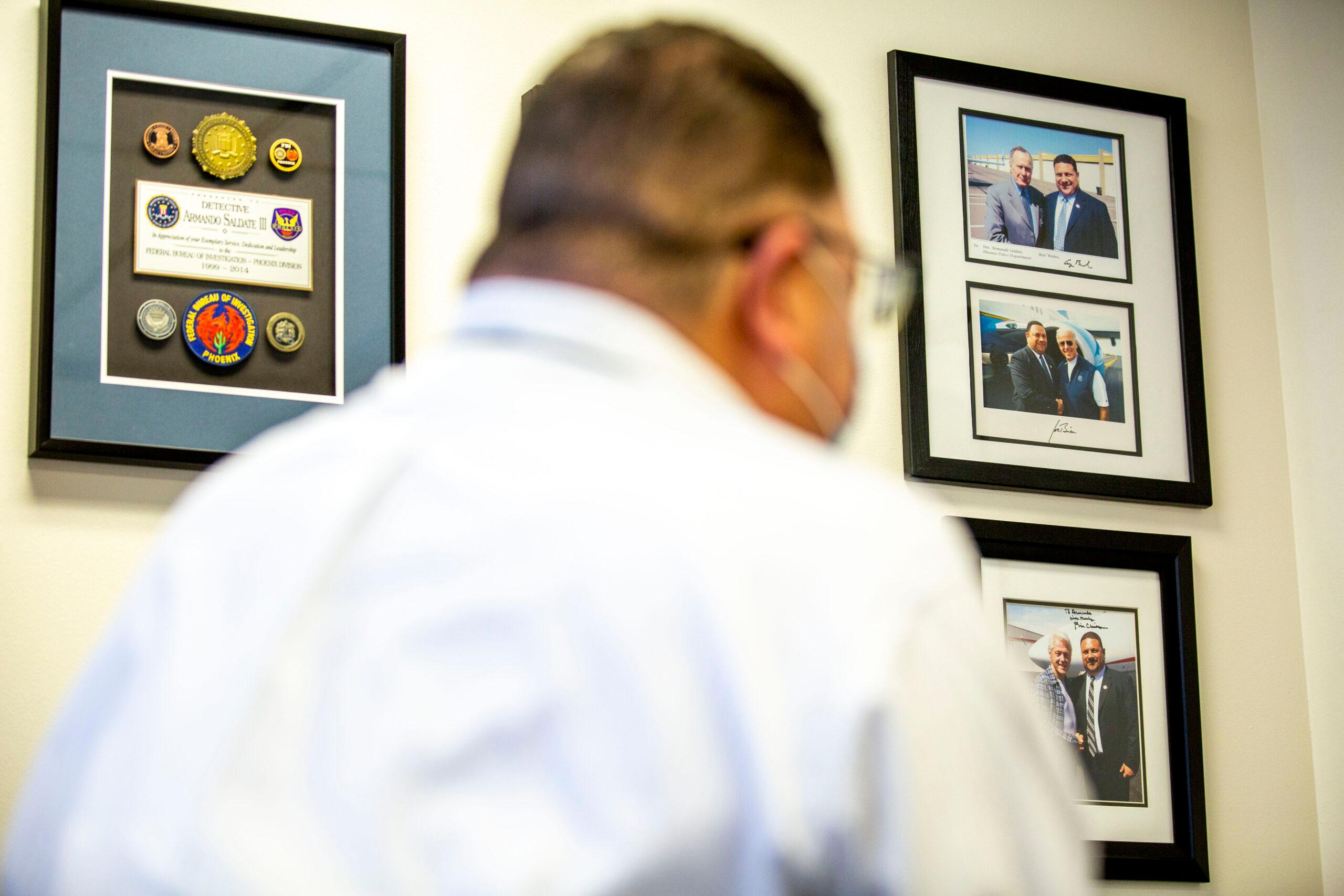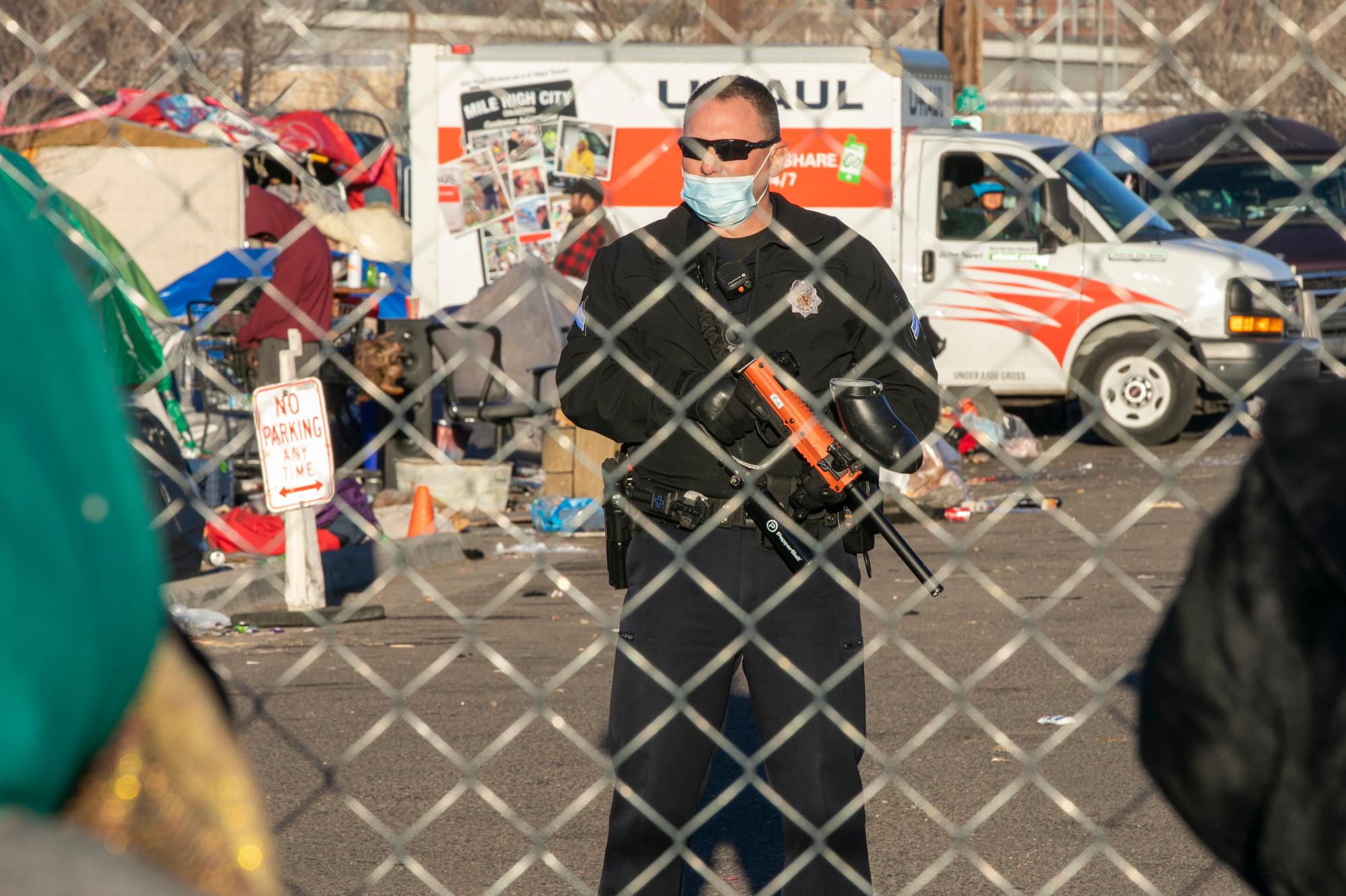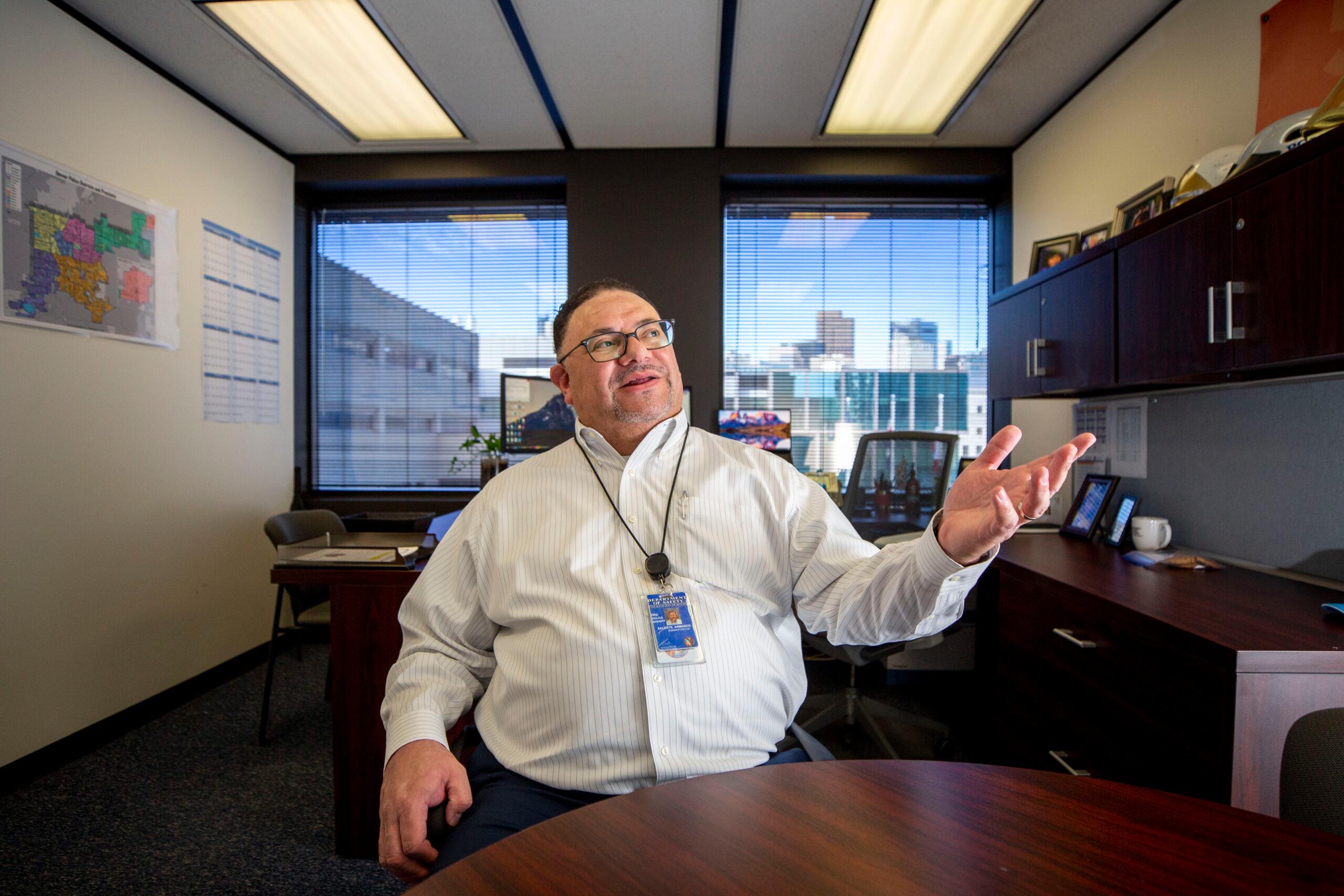Armando Saldate made one call shortly after he was nominated for a new job last week.
Saldate, the current interim executive director of the Department of Public Safety, wanted to reach out to Robert Davis, the project coordinator of a resident-led task force that last year released more than 100 policy recommendations to reform the city's criminal justice system. After Mayor Michael Hancock announced Saldate as his nominee to lead the department, which oversees Denver's police, fire and sheriff departments, Saldate said he wanted to extend an olive branch of sorts.
His predecessor, Murphy Robinson, left the task force last year under tense terms, suggesting the voices of cops involved weren't being heard.
Although Davis wasn't immediately available, the two connected over the phone the next morning.
"I think we're both committed," Saldate said. "I think me and him are committed to working on repairing the relationship."
Pending a formal confirmation from Denver City Council, Saldate would be the third public safety director in two years. Robinson took the position on an interim basis in January 2020 before being named permanent director. Robinson replaced Troy Riggs, who left after less than two years on the job.
Saldate said the department needs stability.
"That's definitely something that is an issue," he said. "One of the things I talk about, in my sense of duty for this role, is truly about a sense of duty that I can help, but mostly how I can help is by stability. Folks need a stable leader."

But he's also aware that, as a mayoral appointee, he's only guaranteed a job through the remainder of Hancock's tenure. After that, he hopes to stick around under the next administration.
Saldate, a former Phoenix cop who also worked with the FBI, said he wants to make his own impact on the office. He's got a hefty to-do list, including getting adequate staffing across all departments, supporting what he called "innovative" ideas like the city's STAR and street enforcement team, and helping people experiencing homelessness.
As a former cop, Saldate said he's seen some of the mistakes made in policing.
He can talk to cops in Denver with credibility, he said, since he's responded to emergencies and tragedies. But he knows that there are disparities in the criminal justice system, and that people of color are often the ones bearing the brunt of its application. Saldate, who's Mexican-American, said as a man of color, he understands why it's important to highlight those discrepancies.
"I grew up in a neighborhood of people of color," Saldate, who grew up in the Maryvale neighborhood in Pheonix, said. "Some people in my family, friends, may not have a high (opinion) of policing and have suffered the effects of that social injustice. I get it."
Davis said he feels hopeful about Saldate's appointment. He's invited the interim director to the next task force meeting, which Saldate plans to attend, most likely over the phone. Saldate has worked with Davis before.

"We also know that we have to move beyond promises and statements to actionable results," Davis said. "So that's more important to me, what is done rather than what is said."
Saldate wants to talk to cops and other city staff who were part of the task force about their experiences. Davis said now that the task force has made recommendations, a partnership between Denver police would be more beneficial than having cops attend the monthly meetings, since its aim has shifted from suggesting policy changes to overseeing how those recommendations are implemented.
Saldate has worked with the city since 2014, mostly in the Denver Sheriff's Department, an agency struggling with staffing shortages.
The union representing the sheriffs has been pretty vocal about its staffing shortfalls. Saldate, who served several roles in the department, including civilian commander in the Internal Affairs Bureau, said he's planning to meet with the sheriffs union to figure out some fixes, and exploring options like retention bonuses to keep people in uniform.
"Not only do I want staffing for our jails to be optimal, but it really ensures the safety of those in our care, in our custody and care," Saldate said.
While staffing issues are not necessarily as concerning for fire and police, Saldate warns their numbers are trending downward. He said filling upcoming academy classes for police will be a struggle, and he's keeping an eye on the number of 911 dispatchers.
Figuring out ways to help people experiencing homelessness is a priority Saldate said he is taking seriously.
Saldate led the development of the Street Enforcement Team, a civilian group tasked with enforcing laws and monitoring the city's homeless encampments. Members are allowed to issue citations, but Saldate said they haven't issued any since they started last fall.

His work with the group has been met with criticism. Councilmember Candi CdeBaca called Saldate's nomination "one of the worst choices the mayor could have made" to replace Robinson, whom she also criticized. She called the street enforcement team an "unsuccessful" response to homelessness.
Benjamin Dunning, director of education and media for the advocacy group Denver Homeless Out Loud, said these teams have been "an annoyance" to people experiencing homelessness. He said while they try to connect people to services, including referring people to shelters, their work isn't helpful, since people living in tenants are often avoiding living in those spaces.
"I hope that the new public safety director has more common sense to address the public safety concerns before they become crises," Dunning said.
Dunning said some immediate ways the city can help people experiencing homelessness include providing bathrooms, like portable toilets, and trash collection for people living in encampments.
Providing housing is the solution, but Saldate said his department doesn't have the resources to provide that. The team was not supposed to resolve homelessness, he said, but instead be used as a resource to minimize police interaction with the community, and connect people to housing options, food and healthcare.
"We can't have that," Saldate said about people living in encampments. "It's not how people should live. We all want housing for them, but we have to make sure that we try to get people on a pathway to success."













